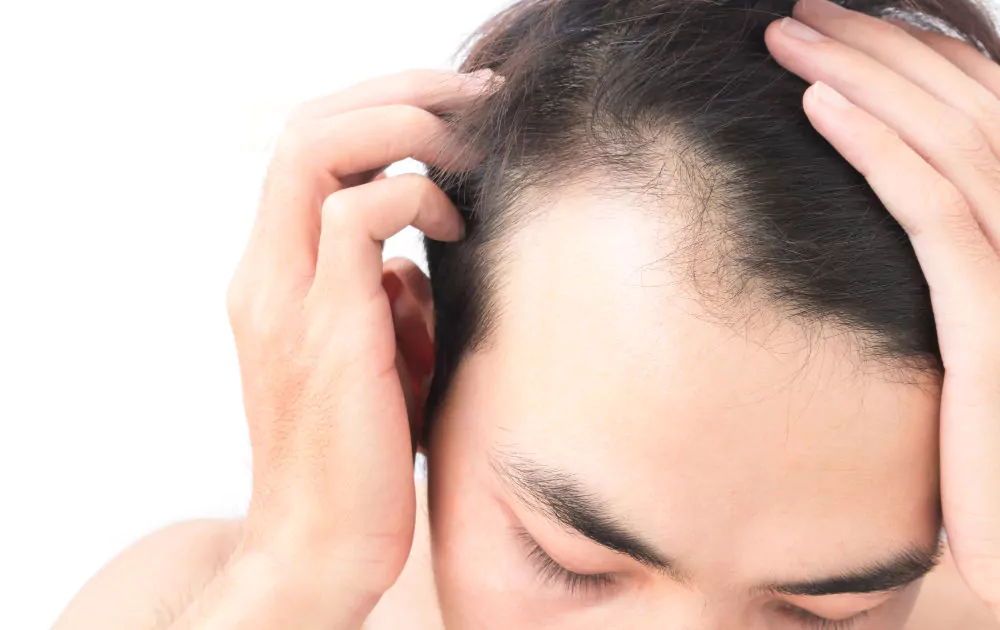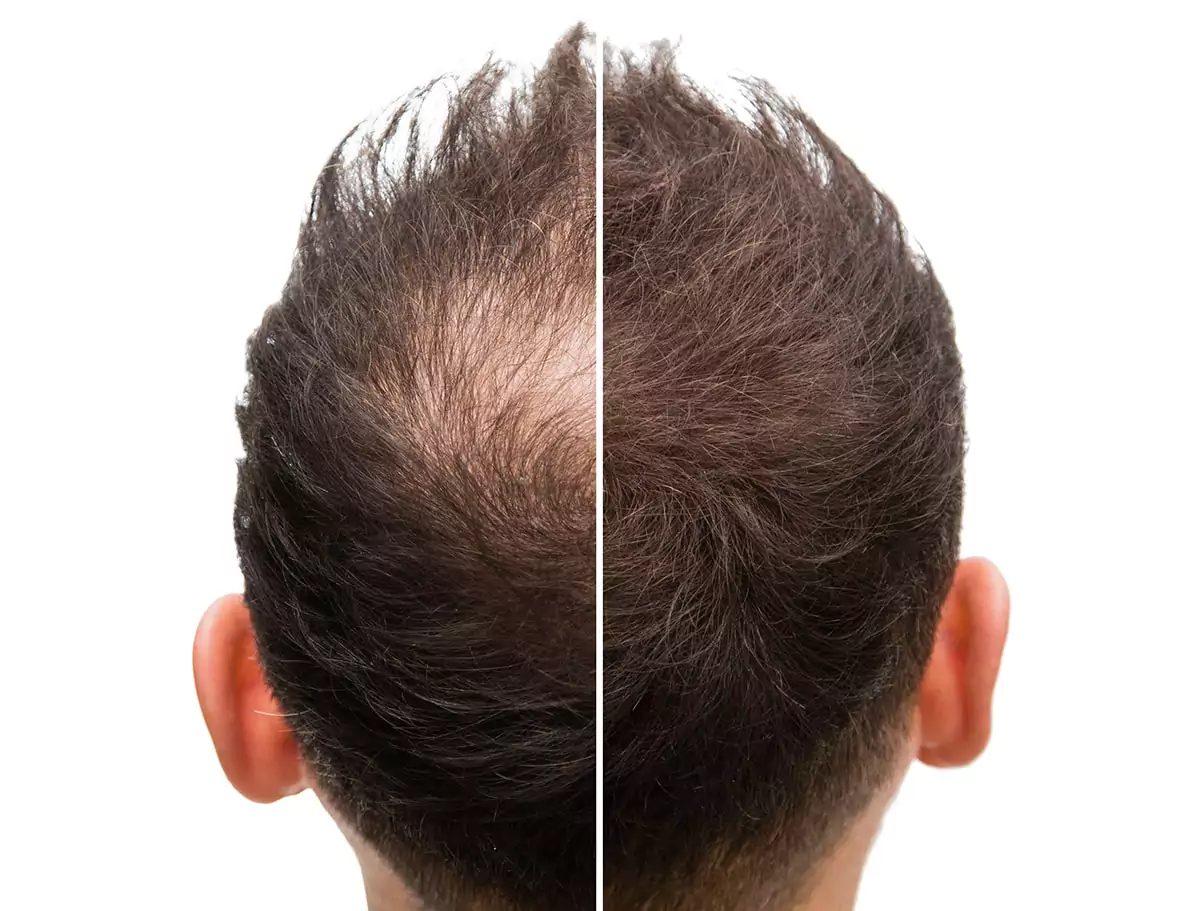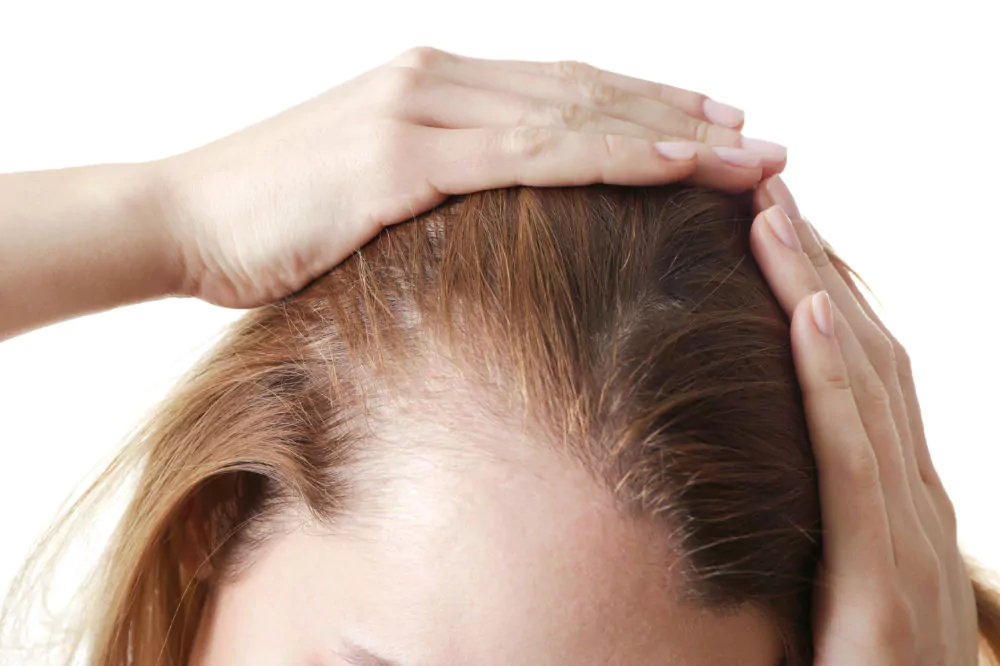Laser therapy for hair loss is a relatively new procedure that seeks to revolutionize the treatment of many major hair loss causes. But what is laser therapy for hair loss? How does it work? Does it work? What does a typical laser hair growth treatment involve?
As Hair and Skin Science offers laser therapy for hair loss in our London Clinic, we thought we would explain.
By the end of this post, you’ll know everything you need to know about LLLT for hair!
What is laser therapy for hair loss? Is it the same as LLLT for hair?
Laser therapy for hair loss, or Low Level Light Therapy (LLLT), is a proven treatment that helps hair follicles regrow hair.
The treatment is also known as red light therapy and uses a medical laser at a very low setting, hence the name.
Low level laser therapy is also called red light therapy, cold laser, soft laser, biostimulation and photobiomodulation.
We’ll just call it laser therapy to keep things simple!
The laser irradiates photons into human tissue, which enables weaker cells to absorb them and become stronger.
Medical lasers are cold lasers, hence one of the many names for this treatment. The lack of heat makes them safe to use in a clinical environment and perfectly safe for many types of treatment.
What conditions can laser therapy for hair treat
LLLT for hair can treat genetic hair loss, pattern balding, androgenetic alopecia, receding hairline, general thinning of hair and other conditions in both men and women.
It can work as a standalone treatment for hair loss or be paired with PRP (Platelet Rich Plasma) treatments for hair loss for more effective results.
How does laser therapy for hair work?
We kind of mentioned how laser therapy for hair works earlier, but let’s go through it in a little more detail.
Hair loss in androgenetic alopecia for example, is influenced by a testosterone derivative, dihydrotestosterone (DHT).
DHT is in the skin in both men and women and is a byproduct of testosterone. Those without hair conditions have normal levels of testosterone. Those with hair conditions tend to have testosterone that transforms into DHT.
DHT interferes with hair follicles and can make them grow thinner, which results in thinning hair or stop developing new hair altogether.
Laser hair therapy reduces the amount of DHT, therefore, reducing the elements that impact the hair follicle.
Low level laser therapy is also believed to increase blood flow in the scalp and stimulate metabolism in catagen or telogen follicles, resulting in the production of anagen hair.
The laser is also believed to release energy and stimulate the process that supports the growth of new hair follicles.
This gives them everything they need to begin working properly again.
Laser therapy and PRP
Laser therapy for hair can be used on its own or be combined with PRP (Platelet Rich Plasma) treatments for extra effect.
Platelet rich plasma uses the healing power of your own blood in concentrated form to deliver a high dose of growth factors to the scalp.
The laser reduces those DHT levels that impairs hair growth and the injection of growth factors into the scalp provides the resources cells need to promote growth.
Combine PRP and the power of laser therapy for hair and you have a very powerful combination. We firmly believe they deliver the most effective remedy possible for a wide range of hair conditions!
What does a typical laser hair growth treatment involve?
One of the many great things about laser therapy for hair is that it is safe, non-invasive, painless and can deliver tangible results.
A typical appointment depends on whether you’re combining laser hair growth treatment with PRP or not.
Typically, we would prepare your hair or scalp for LLLT for hair and apply the laser directly to the scalp.
The laser is a handheld device we can apply in a targeted manner to the scalp. We hold the device in place for a short period of time before adjusting the position so we treat all the areas being targeted.
Once done, you’re free to go about your day.
Laser hair growth treatment requires no surgery, no pharmaceuticals and no invasive procedures.
It’s fast, painless and is proven to be effective at reducing DHT levels.
That’s why Hair and Skin Science are so pleased to offer laser hair growth treatment in our London Clinic!
What else do you need to know about LLLT for hair?
The main thing you need to know about LLLT for hair is that it works. Several studies have shown it to be effective at treating hair loss.
This study from 2013 and this study from 2014 both show positive results for promoting the regrowth of hair. There have been more recent studies, but these two are the ones quoted most often.
Not a one-shot treatment
You also need to know that laser hair growth treatment isn’t a one-shot treatment. You’ll need a course of treatments over a period of months for best results.
Exactly how many treatments you need depends on your hair, your age, overall wellbeing and whether you’re combining laser hair growth treatment with PRP or not.
As we’re all different, it’s impossible to give specifics in a blog post, which is why we offer consultations.
Once we have seen your hair, discussed your needs and assessed your overall health, we can provide a more personalized treatment plan.
Not suitable for those taking photosensitizing medication
LLLT for hair isn’t usually viable for those taking photosensitizing medication. This type of medication makes skin more sensitive to light, which can interfere with how the skin reacts to the laser.
Examples of photosensitizing medication include some antihistamines, some oral contraceptives, phenothiazines, psoralens, sulfonamides, sulfonylureas and other medications.
If in doubt, check with your doctor or tell us about the medication at your consultation.
Laser treatment for hair loss doesn’t work for everyone
While we see tangible improvements in the vast majority of people we treat, not everyone will see improvements with laser treatment for hair loss.
Those that don’t respond to laser treatment for hair loss are in the minority, but we believe it’s important you have the full picture.
Everyone is different and everyone will react in different ways, so until we try the treatment, we won’t know whether you will respond or not.
Chances are you will, but like with everything in medicine, there are no guarantees.
If you want to benefit from laser treatment for hair loss, Hair and Skin Science offer laser hair growth treatment in our London Clinic.
Contact us to learn more!




